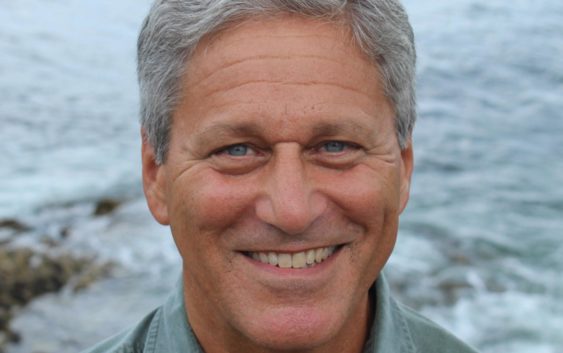- Hurricane Helene donations delivered to Avery County for Share the Warmth campaign
- Old Crow Medicine Show founder talks music, hurricane relief and this weekend's big benefit show
- IV fluid shortage caused by hurricane to last for months
- 'It financially annihilated us': Pregnant mother displaced for 2nd time after western NC floods
- Governor Cooper to reveal crucial disaster recovery plan for Hurricane Helene relief Wednesday
Hurricanes and history: ’Furious Sky’ maps effect from centuries of storms

New book by Eric Jay Dolin looks at how hurricanes shaped U.S. history, with a number of Wilmington-area references sprinkled in
When I was growing up, and on into the 1990s, old-timers seemed to date everything as BH or AH — before Hazel or after Hazel.
Hurricane Hazel, the Category 4 monster that hit coastal North Carolina in October 1954 after killing as many as 1,000 people in Haiti, all but wiped out the town of Long Beach — now part of Oak Island, which took a punch from Hurricane Isaias earlier this month — and wrecked shorelines up and down the Lower Cape Fear. (For more on Oak Island’s hurricane history, read on.)
Thus, it’s humbling to consider that Hazel barely rates two pages in “A Furious Sky,” Eric Jay Dolin’s history of hurricanes in America.
Indeed, Hazel has been dwarfed by storms such as Katrina, Harvey, Sandy or, closer to home, Fran or Floyd. Hazel didn’t even rate on Dolin’s table of the nation’s costliest hurricanes — with damage estimates adjusted for inflation.
For one thing, more Americans have moved into hurricanes’ paths. Brunswick County had fewer than 20,000 full-time residents in the U.S. Census before Hazel. Today, the estimated population exceeds 142,000.
Then there’s the question of global warming. Warmer waters in the tropics seem to churn more powerful hurricanes, as well as storms that move more slowly and tend to linger, as Florence did in 2018. It’s a serious topic, but Dolin, fortunately, makes it as entertaining as possible.
Dolin’s many books on nautical topics include “Leviathan,” on the American whaling industry, and “Black Flags, Blue Waters,” about the golden age of American piracy. Piracy, Dolin argues, may have owed a debt to hurricanes. A Spanish treasure fleet, wrecked by a storm off the coast of Florida in 1715, may have tempted many mariners into salvaging — or robbing from the salvagers.
Nor was that all. Florida might have wound up a French colony, instead of a Spanish one, if a hurricane had not wrecked a French colonial fleet in 1564.
A hurricane wrecked a relief ship to the Jamestown colony in 1609, leaving survivors stranded on the island of Bermuda. (Accounts of their experience, according to scholars, might have helped inspire Shakespeare’s “The Tempest.”)
The Great Hurricane of 1780 seems to have convinced the French to steer their Caribbean fleet northward during the prime hurricane months in the autumn. Thus, it was in position to blockade Lord Cornwallis, whose British army had its back to the water, surrounded by Washington and the French at Yorktown.
And the big hurricanes of 1926 and 1928 put an end to the first great Florida land boom, one of the last hurrahs of the Roaring Twenties.
“A Furious Sky” has a fascinating cast. We see Ernest Hemingway on his boat, the Pilar, hunting for survivors after the great Florida Keys Hurricane of 1935. Katharine Hepburn is spotted digging for mementos from her family’s beach home, destroyed in the great New England hurricane of 1938.
Some of Dolin’s accounts are familiar, like the Galveston hurricane of 1900 that killed more than 6,000 — the subject of Erik Larson”s best seller, “Isaac’s Storm.”
Other tales, however, are little known, like the historic saga of Duncan Davis, keeper of the Oak Island lifesaving station in 1893. When a hurricane hit the coast that year on Aug. 28, Davis and a volunteer crew from Southport set out to rescue sailors and crew aboard two schooners that founded off Frying Pan Shoals. (Davis’ regular crew were on their summer break and were not due to report back until Sept. 1.)
Dolin writes vividly and has a knack for explaining the science of storms clearly, without jargon.
For local color, readers are still advised to check out “North Carolina’s Hurricane History” by Southport native Jay Barnes, now in its fourth edition. “A Furious Sky,” however, provides a breezy introduction to a coastal narrative that never really ends. Just as Dolin was sending his manuscript to press in 2019, Hurricane Dorian hit the North Carolina coast.
Ben Steelman can be reached at 910-616-1788 or peacebsteelman@gmail.com.